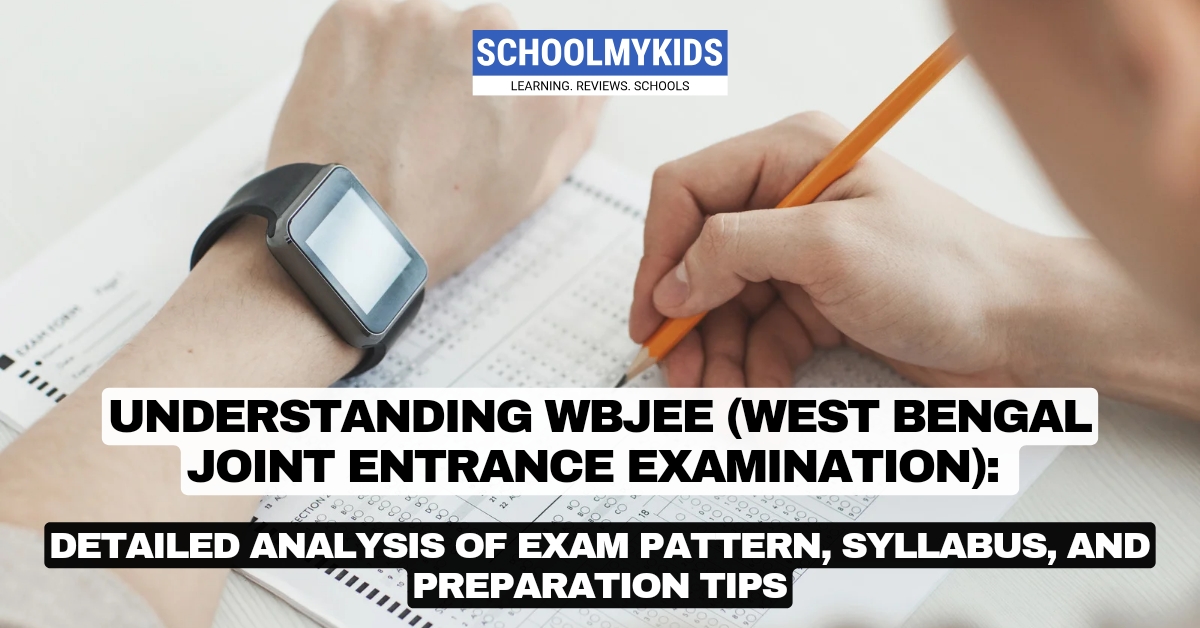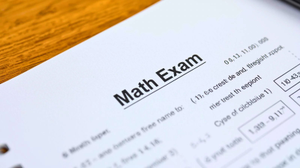The West Bengal Joint Entrance Examination (WBJEE) is a state-level entrance test conducted for admission to undergraduate engineering, architecture, and pharmacy programs in various colleges across West Bengal. This article provides a comprehensive overview of the WBJEE exam pattern, detailed syllabus, essential preparation tips, and resources for effective study.
Overview of WBJEE Exam
Purpose of WBJEE: The WBJEE aims to evaluate the aptitude and knowledge of candidates seeking admission to undergraduate courses in engineering, technology, architecture, and pharmacy in West Bengal.
Importance of Understanding the Exam Pattern: Understanding the WBJEE exam pattern is crucial for candidates to plan their preparation effectively, manage their time during the exam, and maximize their scores.
WBJEE Exam Pattern
Exam Mode:
- WBJEE is conducted in offline mode (pen and paper-based test).
Subjects:
- The exam covers three sections: Physics, Chemistry, and Mathematics.
Type of Questions:
- The question paper includes Multiple Choice Questions (MCQs).
Medium of Exam:
- The exam is conducted in English and Bengali.
Duration of Exam:
- The total duration of the exam is 4 hours, divided into two papers:
- Paper 1: Mathematics (2 hours)
- Paper 2: Physics and Chemistry (2 hours)
Total Marks:
- The maximum marks for WBJEE are 200.
Marking Scheme:
- Category 1: +1 mark for each correct answer; -0.25 marks for each incorrect answer.
- Category 2: +2 marks for each correct answer; -0.5 marks for each incorrect answer.
- Category 3: +2 marks for each correct answer; no negative marking.
WBJEE Detailed Question Paper Design
Example of WBJEE Question Distribution:
| Paper | Section | Number of Questions | Total Marks | Duration |
|---|---|---|---|---|
| Paper 1 | Mathematics | 75 | 100 | 2 hours |
| Paper 2 | Physics | 40 | 50 | 2 hours |
| Chemistry | 40 | 50 | ||
| Total | – | 155 | 200 | 4 hours |
Detailed WBJEE Syllabus
Physics:
- Class 11 and 12 Physics:
- Physical World, Measurements, Units & Dimensions
- Kinematics
- Laws of Motion
- Work, Energy, and Power
- Motion of System of Particles and Rigid Body
- Gravitation
- Properties of Bulk Matter
- Thermodynamics
- Behavior of Perfect Gas and Kinetic Theory
- Oscillations and Waves
- Electrostatics
- Current Electricity
- Magnetic Effects of Current and Magnetism
- Electromagnetic Induction and Alternating Currents
- Electromagnetic Waves
- Optics
- Dual Nature of Matter and Radiation
- Atoms and Nuclei
- Electronic Devices
Chemistry:
- Class 11 and 12 Chemistry:
- Some Basic Concepts of Chemistry
- Structure of Atom
- Classification of Elements and Periodicity in Properties
- Chemical Bonding and Molecular Structure
- States of Matter: Gases and Liquids
- Thermodynamics
- Equilibrium
- Redox Reactions
- Hydrogen
- s-Block Element (Alkali and Alkaline earth metals)
- Some p-Block Elements
- Organic Chemistry – Some Basic Principles and Techniques
- Hydrocarbons
- Environmental Chemistry
- Solid State
- Solutions
- Electrochemistry
- Chemical Kinetics
- Surface Chemistry
- General Principles and Processes of Isolation of Elements
- p-Block Elements
- d and f Block Elements
- Coordination Compounds
- Haloalkanes and Haloarenes
- Alcohols, Phenols, and Ethers
- Aldehydes, Ketones and Carboxylic Acids
- Organic Compounds Containing Nitrogen
- Biomolecules
- Polymers
- Chemistry in Everyday Life
Mathematics:
- Class 11 and 12 Mathematics:
- Sets, Relations, and Functions
- Complex Numbers and Quadratic Equations
- Matrices and Determinants
- Permutations and Combinations
- Mathematical Induction
- Binomial Theorem and Its Simple Applications
- Sequences and Series
- Limit, Continuity, and Differentiability
- Integral Calculus
- Differential Equations
- Coordinate Geometry
- Three Dimensional Geometry
- Vector Algebra
- Statistics and Probability
- Trigonometry
- Mathematical Reasoning
Preparation Strategy
Understanding the Exam Pattern:
- Familiarize yourself with the exam structure, marking scheme, and question distribution to devise an effective study plan.
Focus on Fundamentals:
- Strengthen your basics in Physics, Chemistry, and Mathematics. Ensure a solid understanding of concepts from Class 11 and 12.
Practice Previous Years’ Papers:
- Solve previous years’ question papers to understand the exam trend and difficulty level. This helps in identifying important topics and improving time management.
Take Mock Tests:
- Regularly take mock tests to simulate the exam environment, assess your preparation level, and identify areas that need improvement.
Effective Time Management:
- Allocate specific time slots for each section and stick to the schedule. Practice time-bound solving to enhance speed and accuracy.
Recommended Resources
Free Study Materials:
- NCERT textbooks (Classes 11 and 12) for Physics, Chemistry, and Mathematics.
- Standard reference books for each subject.
YouTube Channels:
- Unacademy: Offers comprehensive video lectures and problem-solving sessions.
- Khan Academy: Features detailed topic-wise explanations and interactive sessions.
- Byju’s: Provides in-depth explanations of core concepts in Physics, Chemistry, and Mathematics.
Conclusion
Preparation Strategy:
- Understanding the exam pattern, focusing on fundamentals, practicing previous years’ papers, and taking regular mock tests are key to excelling in WBJEE.
Resources:
- Utilize free study materials and educational YouTube channels to strengthen your preparation.
FAQs
Common Queries about WBJEE:
Q: What type of questions are asked in WBJEE?
A: WBJEE comprises Multiple Choice Questions (MCQs) that test the candidate’s knowledge in Physics, Chemistry, and Mathematics.
Q: What is the marking scheme of WBJEE?
A: The marking scheme varies by category:
- Category 1: +1 mark for each correct answer; -0.25 marks for each incorrect answer.
- Category 2: +2 marks for each correct answer; -0.5 marks for each incorrect answer.
- Category 3: +2 marks for each correct answer; no negative marking.
Q: How important is the NCERT syllabus for WBJEE?
A: The NCERT syllabus forms the core of the Physics, Chemistry, and Mathematics sections. Thorough understanding and revision of NCERT textbooks are crucial for scoring well in the exam.
Q: Are there any limits on the number of attempts for WBJEE?
A: No, there is no limit on the number of attempts for WBJEE. Candidates can appear for the exam as many times as they wish, provided they meet the eligibility criteria.
Q: How can I manage time effectively during the WBJEE exam?
A: Practice time-bound solving of previous years’ papers and take regular mock tests to enhance your speed and accuracy. Allocate specific time slots for each section and stick to the schedule during the exam.









Be the first one to comment on this story.